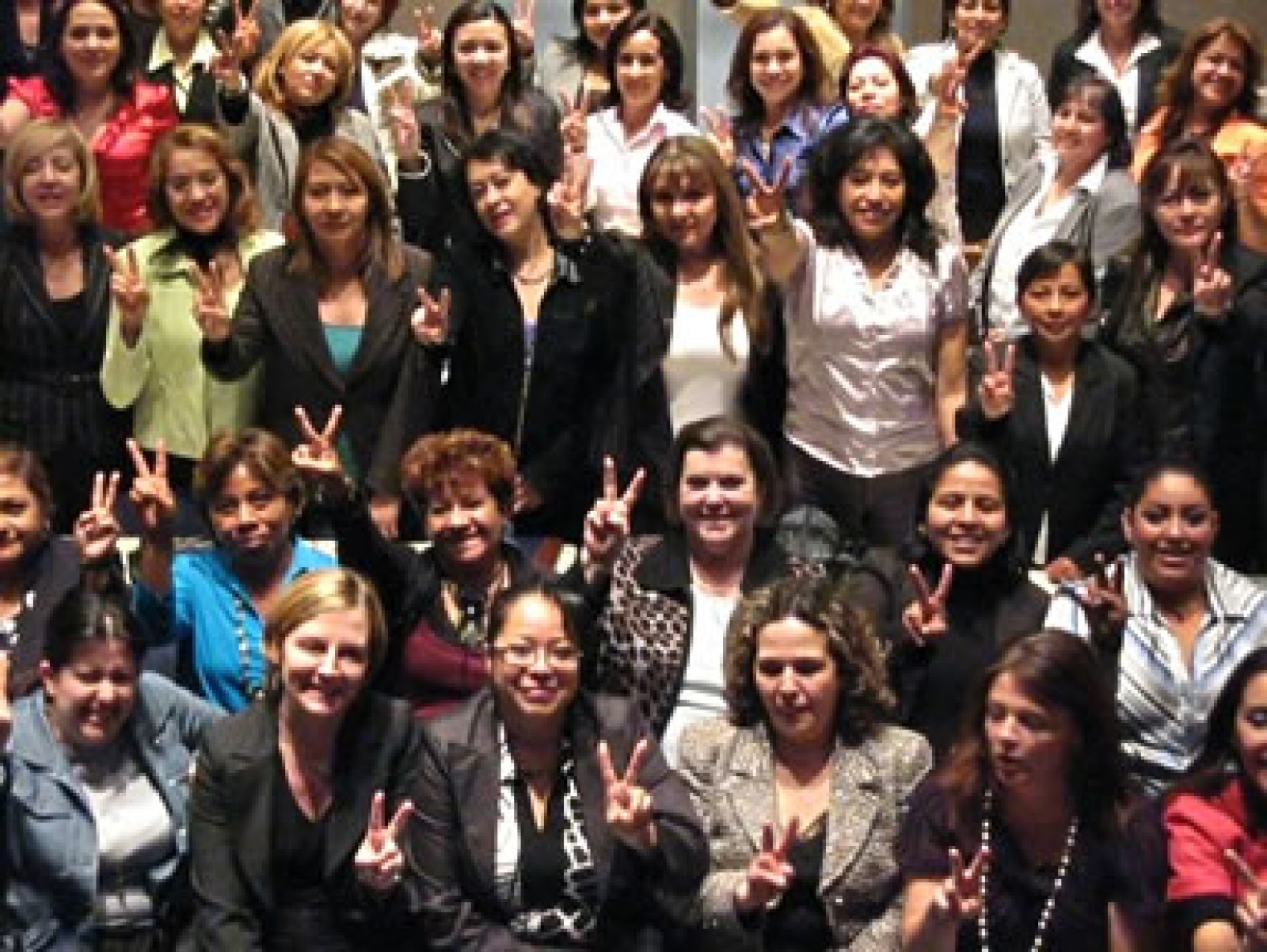
SHARE
As Mexico celebrates 55 years of women’s suffrage, women candidates continue to face obstacles in running for elected office. While gender quotas have led to an increase in the past two decades of women holding party and elected positions, they still represent fewer than 5 percent of municipal and state elected officials. They also often receive ballot placement that lessens their chances of winning and they receive less public financing and fewer opportunities for training.
In preparation for July 5 parliamentary and local elections, NDI worked with Mexico’s three major political parties, National Action (PAN), the Party of the Institutional Revolution (PRI) and the Party of the Democratic Revolution (PRD), to hold four day-long training sessions for more than 300 women primary candidates in San Luis Potosí, Zacatecas and Mexico City.
Presenters included Cathy Allen, a leading international women’s political consultant; Linda Mitchell, chairman of the National Women’s Political Caucus of Washington State; Lulu Flores, president of the National Women’s Political Caucus; and Courtney Gregoire, former legislative director and general counsel to U.S. Senator Maria Cantwell, D-WA.
Sharing valuable advice on what it takes to run for elected office as a woman, the presenters highlighted effective time management and fundraising techniques as well as how political candidates can employ new media technology in their campaigns. Mexican parties are largely funded by the government, but women candidates often receive less public money than their male counterparts. If a woman can raise funds from private sources, it often enhances her chance of winning. Mitchell provided tips on how women can develop lists of potential donors and calculate fundraising goals. Participants also had an opportunity to craft donor “pitches” and receive feedback from the international guests.
While Mexican campaigns have used short message service (SMS) technology in get-out-the-vote efforts, email, blogs and social networking sites has only recently been used to recruit volunteers, promote specific policies and platforms, and involve citizens in discussion and debate about issues. Gregoire cautioned participants that the use of technology does not replace face-to-face contact with voters. But she noted that email and SMS can be powerful tools for communicating with potential voters, social networking sites can help organize volunteers, and the Internet can help campaigns gather input on issues of public concern, among other things.
This program was funded by the U.S. Agency for International Development (USAID)
Over the past three years, NDI has worked closely with the gender sections of the PAN, PRI and PRD to assist in the design and implementation of strategies to increase women’s political participation. NDI has also provided technical assistance to thousands of women party activists and candidates through training on political negotiation, strategic planning, message development and media relations.
Pictured above: Participants in a training session for women candidates in the 2009 parliamentary and local elections.
–
Published on March 19, 2009


